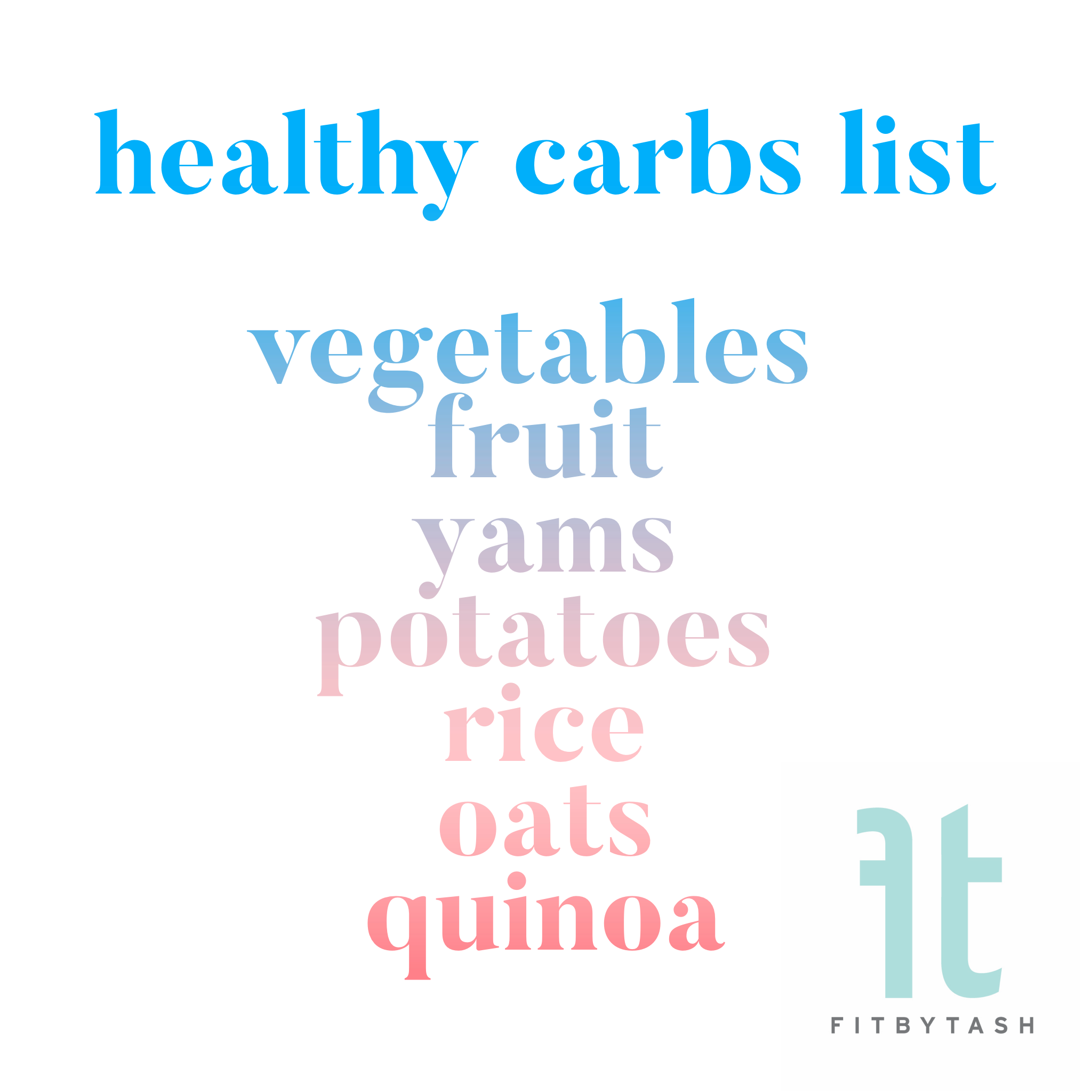Carbohydrates have become demonized when trying to lose weight. If you’re anything like me, you’ve tried to get in shape by controlling carbs, calories, macros, etc. Restriction always ends in frustration and a rebound.
I have clients come to me all the time saying they struggle with the amount of carbs they eat. They think if they just eat low carb they will lose the weight they’ve been struggling for years to lose.
But we know weight loss comes down to calories in versus calories out. At the most basic level, we burn calories through our metabolism and physical activity. Activity includes exercise (cardio + lifting weights) and lifestyle activities (walking, parking far away, taking the stairs, gardening, dancing, etc).
While quality of food is important for overall health and body composition, to lose weight it always comes down to the calorie equation. Eat less calories than we burn, we will lose weight, regardless of how many carbohydrates we eat. Consistently eat more calories than we burn, we will gain weight, no matter how healthy our food choices.
Carbohydrates are our body’s preferred source of fuel. When we eat carbs, they get converted into glycogen, which is stored in the muscles and liver. Glycogen is the primary source of fuel during intense exercise. Low-carb diets diminish glycogen stores which inhibits performance, workout recovery and muscle growth.
Carbohydrate and protein are very chemically different than the molecules that make up body fat. They get heavily processed in the body before being able to be stored as body fat. Dietary fat is more chemically similar to body fat, so it requires very little energy for converting into body fat. Consistently eating in a caloric surplus where the majority of the surplus is from dietary fat is guaranteed to cause fat gain. Another point to mention is if a meal is higher in fat, keeping carbs low (and vice versa: if a meal is high in carbs, keeping fats lower) helps control caloric intake and therefore fat loss.
The biggest problem with carbs is they’re easy to overeat since they tend to be processed and hyperpalatable (hello bread, chips, crackers, and pasta…). If we stick to the healthiest complex carbohydrates which include vegetables, fruit, and grains like oats, rice, yams, quinoa, and potatoes, our blood sugar will remain relatively stable and we’re less likely to overeat. Energy levels won’t dip and we’ll be satiated for hours. These complex carbs contain beneficial dietary fiber which promotes digestion and keeps us full after a meal.
If you overeat a food, it’s best to cut it out almost entirely. For me, it’s pizza and a fresh homemade or bakery chocolate chip cookie. The solution I take is to not keep it in the house, and occasionally I’ll include it in my 10% flexibility.
It’s super common among my clients to overeat bread which is usually paired with butter. If you’re someone who struggles with this, limiting the amount of bread you eat can directly help you lose weight.
Most diets restrict the amount of carbs you can eat, which helps you lose pounds overnight. This quick weight loss is simply due to the depletion of water and glycogen in your liver and muscle tissue. Ever go on vacation and when you come home the scale says you’ve put on several pounds? Good news is most of this is just water retention.
For most people, cutting out an entire macronutrient is completely unsustainable. When we tell ourselves we can’t have something, it becomes all we think about. We can only rely on willpower for so long. A balanced approach to food is the key to sustainable weight loss.
We can’t possibly control the food at every event or restaurant. We can however make the best decision given our options. We know caloric restriction is the most important thing when it comes to weight loss. So grilled, baked and broiled will trump breaded, fried and buttery foods. Chicken or fish, vegetables and a baked potato is a great option compared to something higher in fat and heavily processed like a creamy pasta alfredo. Our results are based on what we do 80-90% of the time. We don’t have to be perfect. We can still enjoy our favorite foods in moderation 10% of the time.
The average person does well with 40-55% of their calories from carbohydrates. This level promotes good energy, reduces cravings, improves workout performance and overall mood.
It’s important to experiment and find what works best for you. If you have more fat to lose and/or are less active, you’ll fall at the lower range for carbs. If you are very active and/or don’t have much weight to lose, you can get away with eating more carbs. So the biggest takeaway is to listen to your own body and not be afraid to include quality complex carbohydrates as a regular part of your diet.
If you need more help on putting together a workout routine and nutrition plan that’s balanced, healthy and maintainable, check out Sweat and Sculpt here.



